Infographics are one of the most popular and visually engaging ways to share bite-sized information with your audience.
Whether it’s statistics, technical data, instructions, or processes, an infographic can be adapted to communicate all kinds of ideas and stories in a fun and easy way.
And contrary to what you might think, you don’t have to be a professional designer to create your own.
Not sure where to start? We’ve compiled a list of infographic ideas to inspire your next design.
- Behind the scenes
- Step-by-step
- Showcase
- Tips and tricks
- Comparisons
- Pitch and promote
- Visualize articles
- Re-purpose viral content
- Tell your story
- Thought leadership
- Highlight interesting data
- Bust a myth
- Be inspirational
- Look at history
- Look at the future
- Dive into research
- Help your audience succeed
- Take advantage of festive seasons
1. Behind the scenes
People are naturally curious about how things work, how they’re made, or what makes them interesting.
Behind-the-scenes infographics allow you to tap into this natural curiosity by showing your audience how your product and service are made, the history of your organization, or what your brand stands for.
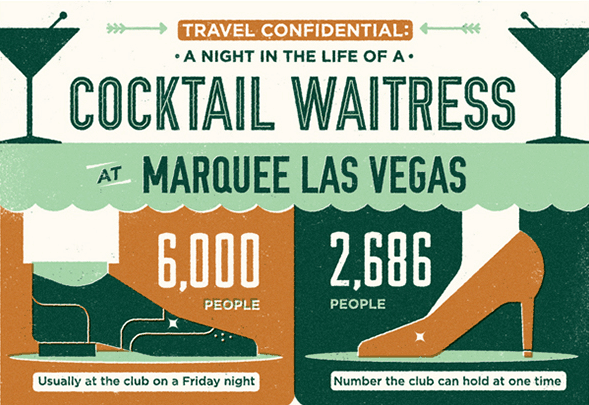
Suggested infographic topics:
2. Step-by-step
Step-by-step infographics allow you to visually break down processes, products, and services with specific instructions into multiple steps.
Presenting this information as an infographic beats having boring bullet points. Be sure to use graphics, arrows, and images to provide context to each of your steps.

Suggested infographic topics:
- How users can get the most out of your product
- DIY ideas (for arts and crafts businesses)
- Guides on concepts like communication, marketing, and design among other things.
3. Showcase
Use infographics to show off your offering in a cool way. This is great if your brand is in a particularly competitive market and needs creative marketing collateral that grabs people’s attention.
For example, you can use one to highlight the most important features or benefits of your product and service.
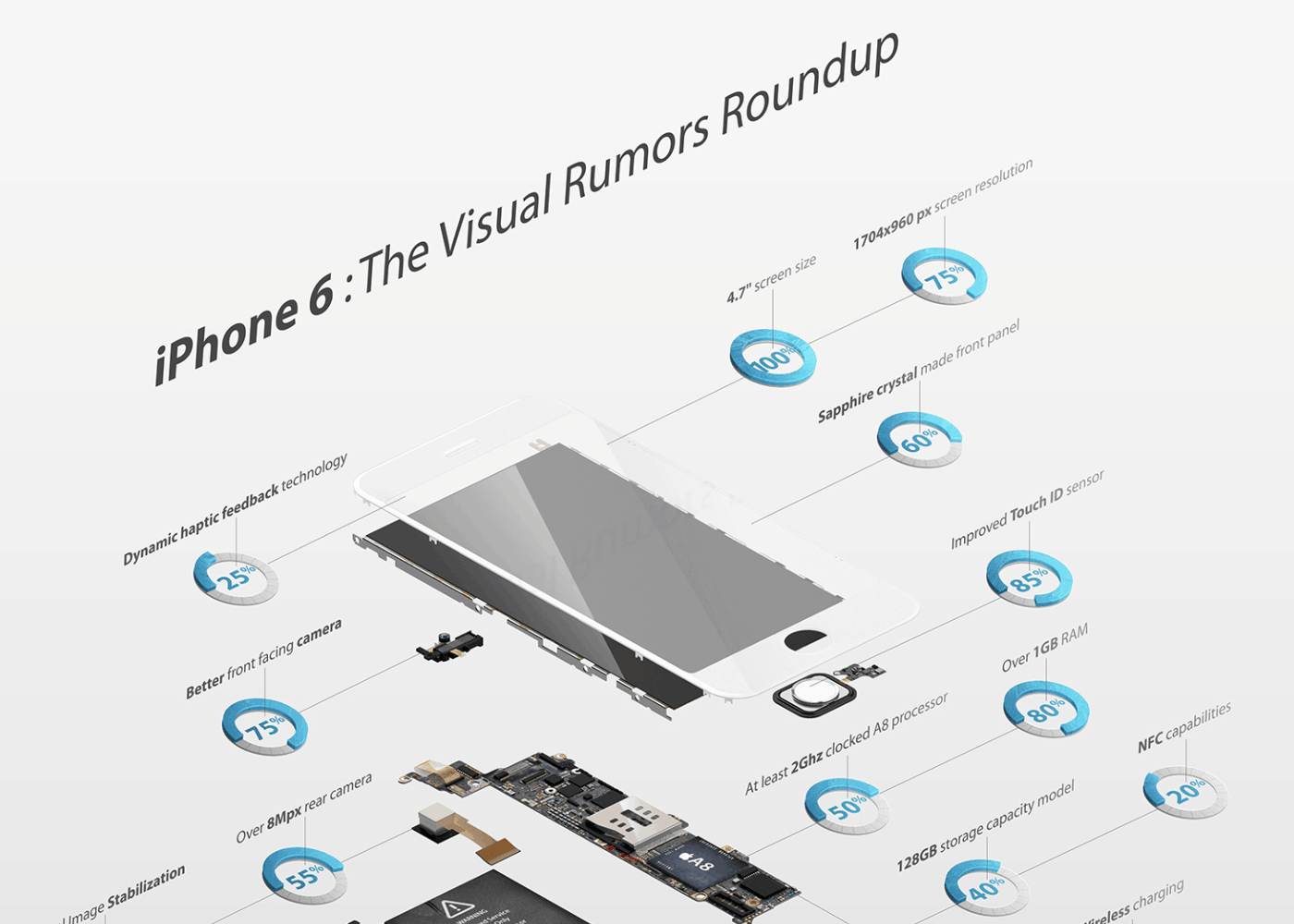
Suggested infographic topics:
- Introductions to new offerings
- Little known facts about your brand or offering
- Features and benefits of your offering.
4. Tips and tricks
Infographics are a fantastic medium for communicating best practices and all sorts of tips, tricks, and secrets on a wide variety of subjects.

Suggested infographic topics:
- How to safely use your products
- How to study better
- Increasing efficiency
5. Comparisons
Why use a chart to compare and contrast information about your brand or offerings when an infographic lets you do it in a more visual way?
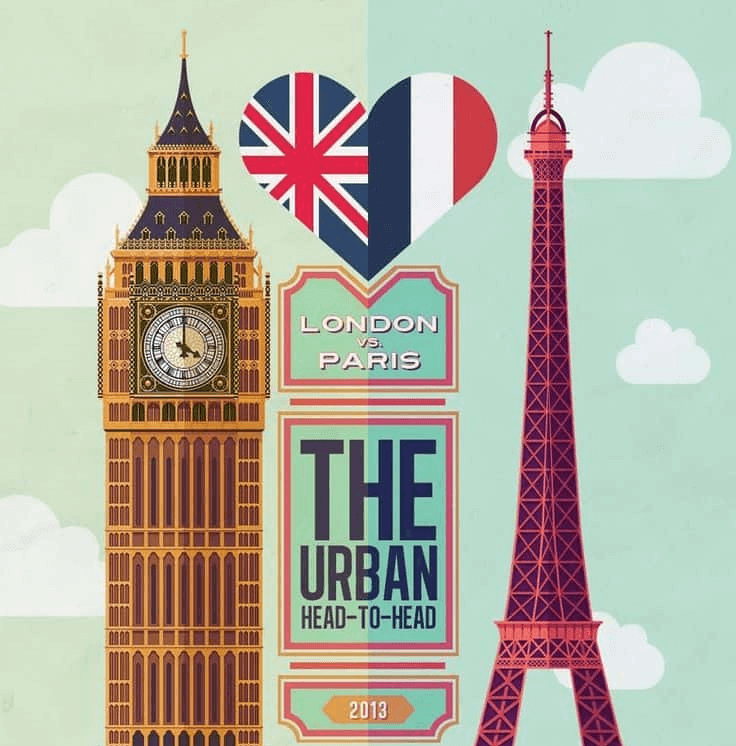
Suggested infographic topics:
If you have a new iteration of a product or service, use an infographic to compare the old and new version. Make sure to highlight improvements and new benefits. You can also use charts to emphasize growth.
6. Pitch and promote
The pitch and promote can be used to generate interest in your product or service and show why it’s a better option than your competitors.

Suggested infographic topics:
Have an upcoming event? Use an infographic to show why people should go, what participants can expect, and what they’ll get out of it.
7. Visualize articles
“A picture is worth a 1000 words.”
It’s a cliché, but it’s a cliché for a reason. Visuals can help your readers better understand what you’re talking about and learn faster. Not all your infographics need to explain how something works. You can go for something lighter and give a collection of tools, like the example below.

Suggested infographic topics:
Take one of your blog articles and highlight its most important information—this can be unique data, interesting facts, statistics—in your infographic.
8. Re-purpose viral content
If you have viral content on your blog or social media channels, consider re-purposing it into an infographic to tell a visual story.
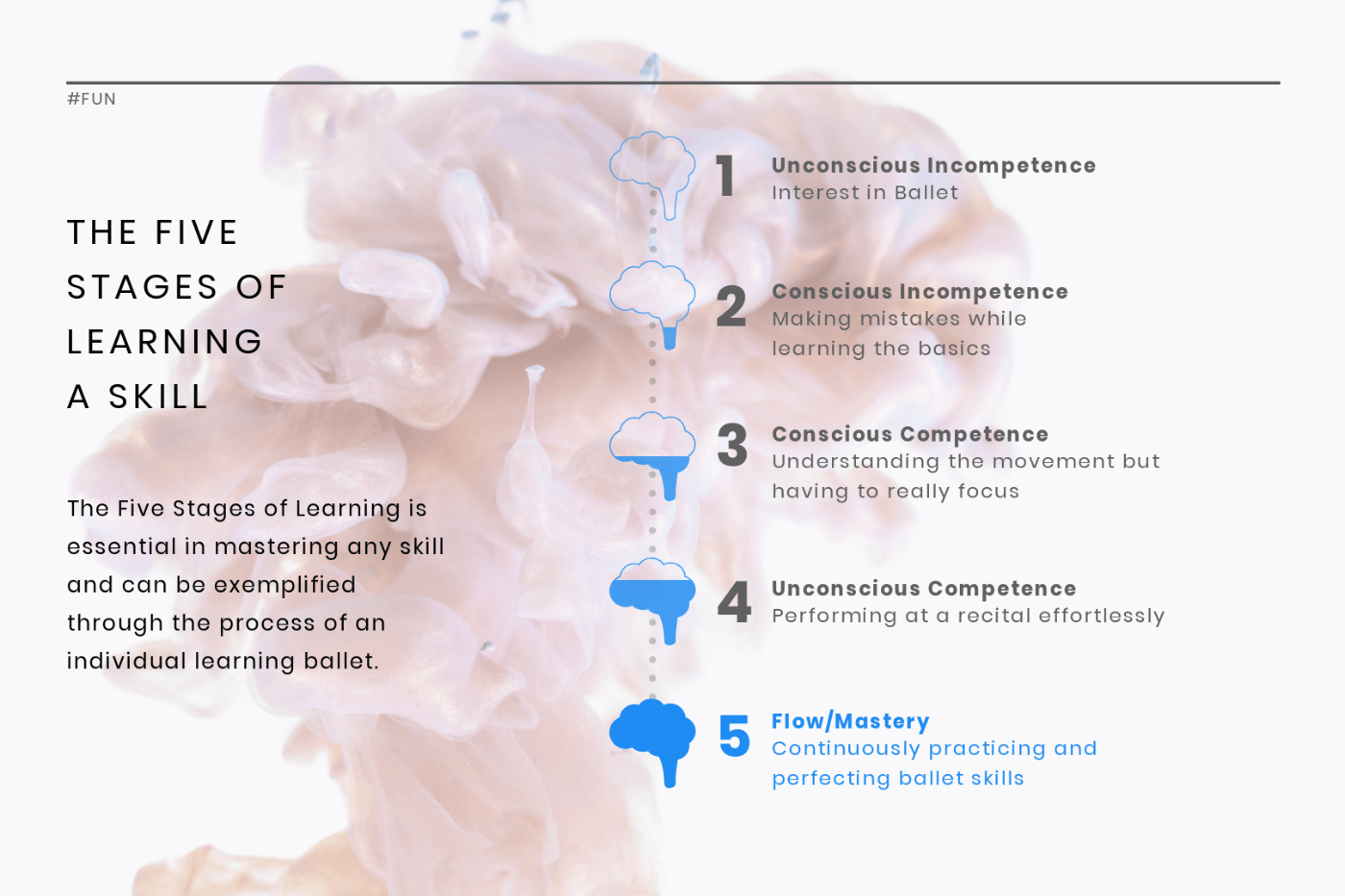
Suggested infographic topics: For example, if your Facebook post about a certain bit of news or an interesting fact generated clicks and views, you can expand on this information in your infographic. For example, a wellness company that posted a popular bit of health trivia can re-purpose it into an infographic.
9. Tell your story
Rather than bore readers with a written history of your brand, why not take the most important dates and events and share a visual story of your business?
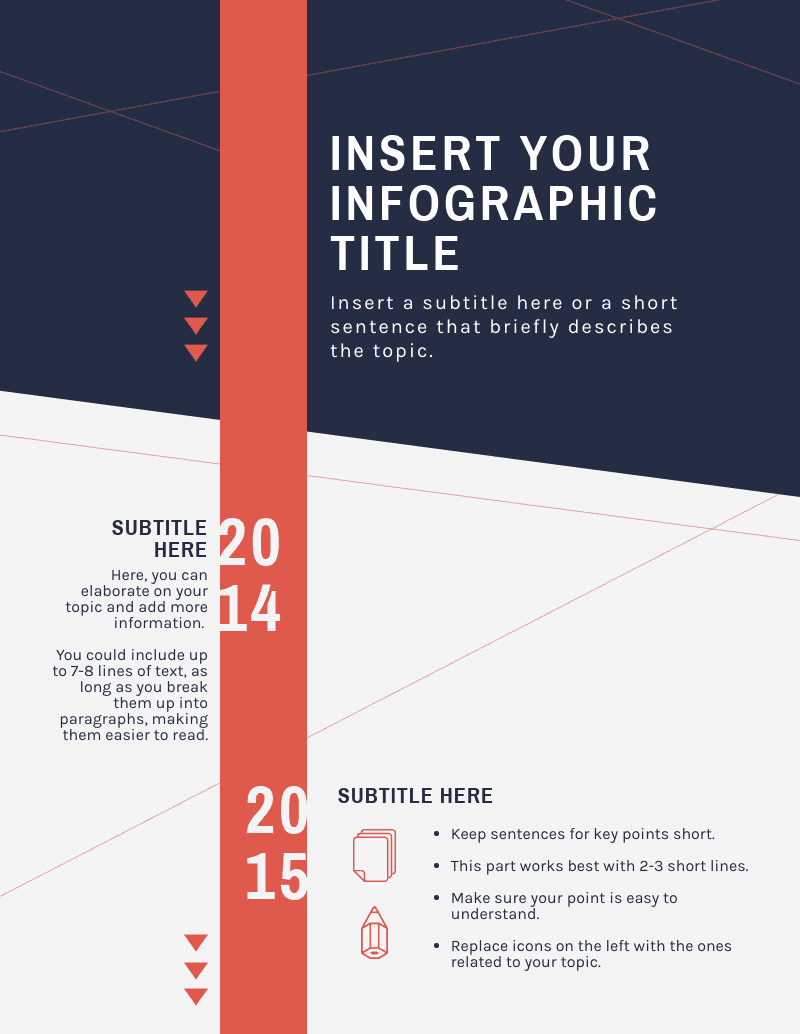
Suggested infographic topics: Use a timeline to tell your organization’s history, similar to the example above. You can also use this chronological format to talk about the process of how your products were developed.
10. Thought leadership
One way to use infographics is to share your own take on industry practices and developments. For example, a marketing expert can share her thoughts on a concept like the SWOT analysis.

Suggested infographic topics: Aside from sharing your ideas, you can use an infographic to highlight your company’s participation in events, your personal speaking engagements, and awards and recognition received.
11. Highlight interesting data
One of the most common ways people use infographics is to take interesting facts, dates, or statistics, and combine these with a bit of text to explain what they mean.

Suggested infographic topics: Use this approach to highlight survey results (see the example above) and emphasize facts in your industry (e.g. for an immigration farm, the number of petitions processed each year).
12. Bust a myth
Busting myths with hard facts is always fun, more so when it’s done in a visually engaging way. And every time someone shares your clever infographic, it makes your business look good and establishes you as a thought leader.

Suggested infographic topics: Look up some of the most common misconceptions in your industry (e.g. dentists can share oral hygiene myths) and refute each one with facts. Be sure to cite your sources so readers will know your infographic can be trusted.
13. Be inspirational
The visual nature of infographics makes it easier to communicate information and strike an emotional chord with your audience.

Suggested infographic topics: Talk about anything that’s inspiring to you and your audience, whether it’s a feel good quote, scripture, excerpts from books.
14. Look at history
Let’s face it, talking about history can get old pretty fast. Rather than bore readers with a wall of text, take a trip to the past by highlighting the most important dates and explaining the significance of each one.

Suggested infographic topics: Draw from major events in your industry to get an idea of potential topics whose historical background you can talk about. For example, restaurants can share the origins of certain dishes, fashion brands can talk about the lives of designers—the possibilities are endless.
15. Look to the future
Many people are naturally anxious to know about what’s going to happen in the future, which is where you and your infographic come in.

Suggested infographic topics: Trend lists are a great way to grab people’s attention. Consider designing a visual that doesn’t just predict trends, but also breaks down its implications for your audience.
16. Dive into research
One of the best ways to show off your industry expertise is by conducting your own research and publishing your findings in a case study.

Suggested infographic topics: Don’t have research of your own? Don’t worry, you can always aggregate interesting facts and figures that are relevant to your business and industry. Showcase these in a beautiful infographic and be sure to cite your sources.
17. Help your audience succeed
Use infographics to share actionable insights your audience finds valuable.

Suggested infographic topics: The key is to find topics that align with your audience’s interests, pain points, challenges, and needs. Find out how your business can help them, and use this as the basis of your content ideas.
18. Take advantage of festive seasons
Like posters, flyers, and postcards, you can use infographics to celebrate holidays and festive occasions, whether it’s Christmas, Thanksgiving, or Halloween.

Suggested infographic topics: Give customers a look at what you have going on during the holidays, whether it’s an event like a charity drive, a special promotion, or you business hours.
Take your idea and start designing your infographic
Now that you know what kind of ideas and topics you can play around with and how they could potentially look like in visual form, go ahead and create something informative and beautiful. The trick is to put yourself in your audience’s shoes.
Ask yourself: “Will my followers or potential customers find this message useful?” Once you can identify your subject and angle, it becomes easier to start designing your infographic with confidence.

